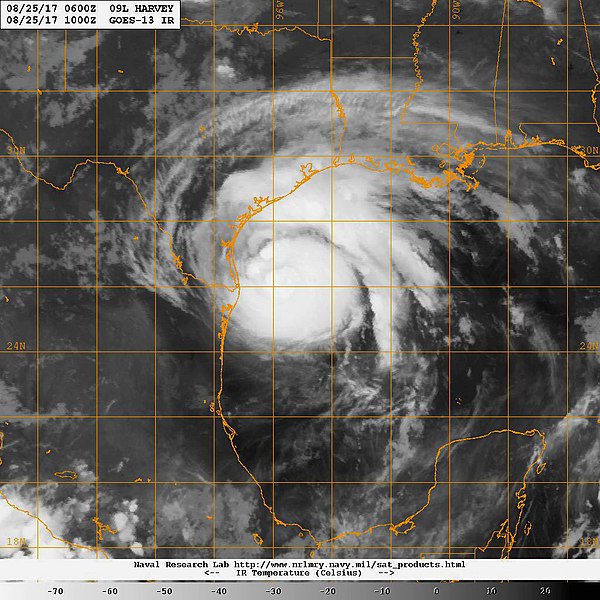“In medias res” is Latin for “in the middle of things.” Frequently, it refers to the literary device of plunging readers into some central action of a story (often an epic) and then filling in the details and background later.
The residents of Houston must have felt that they were plunged into the middle of some epic story as Hurricane Harvey dumped up to 50 inches of rain on them and flooded much of the city. Early estimates suggest that this hurricane could end up being the costliest natural disaster in U.S. history.
Hurricane Harvey is almost certainly an epic story unfolding before our eyes. That means the significance of events and outcomes surrounding the hurricane will only be filled in later–creating analysis, folklore and perhaps even a cultural output on par with that which followed Hurricane Katrina (think: the television series “Tremé”).
There will be stories about the failure or success of the emergency response effort. There will be denunciations of those officials who recommended staying put and recriminations of those doing the denouncing. There will be riveting accounts of suffering and also of heroic rescues and exceptional kindness. And, there will be stories of lawlessness and cruelty.
Harvey will almost certainly be styled as a tragedy. The storm is undoubtedly a colossal misfortune, and we should have compassion for those affected. But from a literary standpoint, it is not a tragedy at all. A genuine tragedy requires that the main players be unaware of how their own flawed character is leading them to self-destruction. A genuine tragedy depicts an ineluctable course of events. Nothing and no one could have prevented them. Greek tragedians relied on Ananke, the goddess of fate, to drive the action of their plays.
But humans do know that their actions are leading to climate change–which many climate scientists foretold would result in increasingly destructive storms. Denial of such a link is not the same as ignorance. Denial means the message has been received and recorded, just not accepted.
It is, of course, an irony that the city most associated with the oil and natural gas industry should be struck so fiercely by a climate-change enhanced hurricane. But this should NOT be read as some kind of divine retribution either in the literary or the religious sense. The discovery and use of fossil fuels has long been hailed as the basis for modern prosperity and advances in human well-being the world over. Those involved in such discoveries and the refining and distribution of the output have until relatively recently often been cast as heroes in history, in literature and in film.
More energy–to those who have access to its benefits–has meant longer, healthier lives and rapid development of wondrous technologies which rely on abundant energy supplies for their deployment and operation. The modern technical civilization in which we live relies on continuous high-grade energy inputs in order to function. Without those inputs our society would quickly collapse. If we rail against those who have extracted and refined those fuels for us, we are only railing against ourselves for using them. (On the other hand, if we rail against those who have systematically lied about the climate effects of burning fossil fuels to the public and policymakers, that is another matter.)
It is true that the ravages of climate change have to date fallen disproportionately on those least responsible and least capable of protecting themselves such as island nations now being inundated by rising sea levels and the poor in drought-stricken areas of the world. What Hurricane Harvey is showing us is that climate change will spare no one.
The sadness and destruction inflicted on residents of the Gulf Coast will flicker on television and computer screens for weeks to come. Their misfortune is truly our misfortune–even if we are only capable of feeling it in the price and availability of gasoline.
But we should not mistake misfortune for tragedy–which many of our leaders will almost surely want us to do. They will want to paint Hurricane Harvey as a tragedy. They will use that word again and again, wittingly or unwittingly making Harvey out to be an unforeseen and unforeseeable event for which we humans have no culpability (or at most only a little and therefore hardly worth mentioning).
That takes them and us off the hook for neglecting the causes behind the great misfortune which this storm has become. And, it would encourage us and them to do little to try to mitigate future misfortunes as the catastrophe of climate change descends upon us.
Image: An infrared satellite image of Hurricane Harvey, a category 2 hurricane. Source: U.S. Navy. 25 August 2017. Via Wikimedia Commons.






